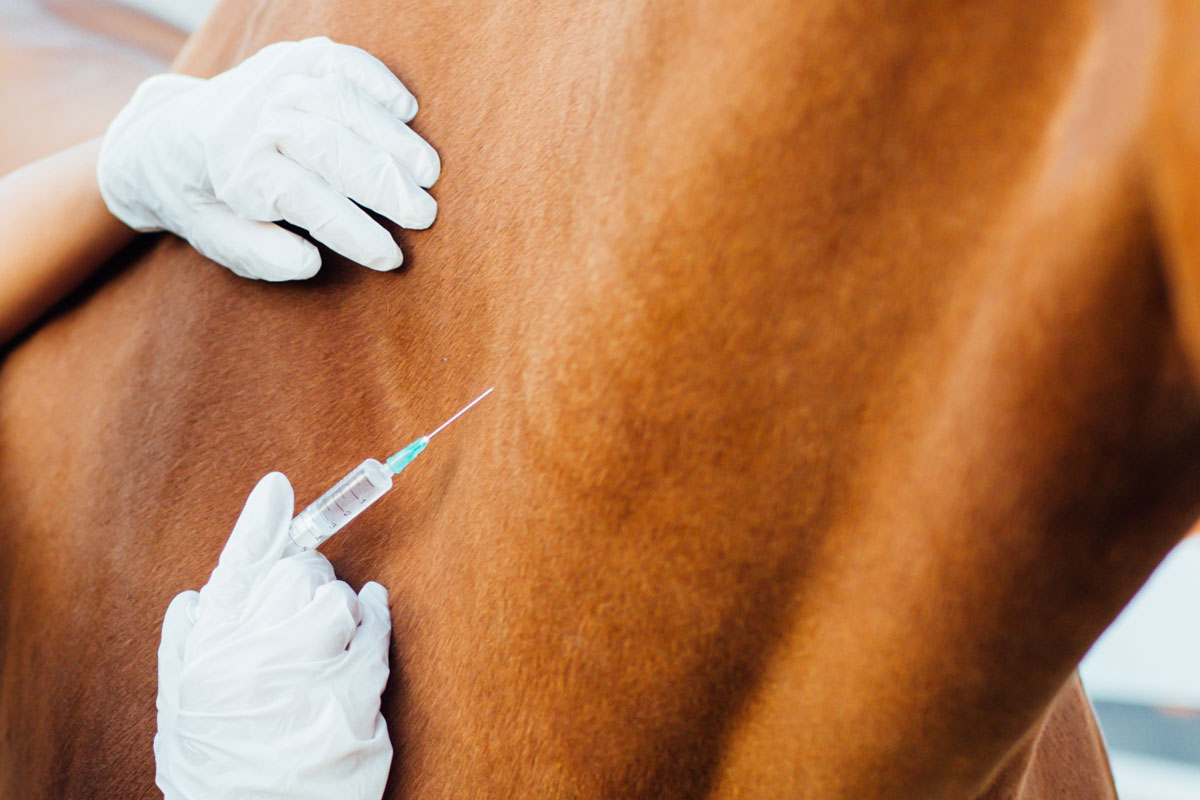
09 May 2020 Senior horse care basics: an ounce of prevention
During the past twenty years, revisions in vaccination protocol have addressed the threat of contagious disease in horses. When the West Nile virus emerged in 1999, the American Association of Equine Practitioners added vaccination against this virus to its list of core vaccines recommended for horses. Other core vaccines include rabies, Eastern and Western encephalitis, and tetanus.
Fall and spring shot protocol may differ. For example, as the winter months approach to minimize the mosquito population, vaccination against EEE and WEE and WNV may be more appropriate for the spring schedule. Tetanus and rabies can be given any time of year as these conditions are not spreadable by insects. Vaccinations become more critical with each passing year. Be mindful of threats to your horse’s health by following these guidelines.
- Keep up on the core vaccines recommended by the AAEP.
- Consider six-month boosters if your veterinarian thinks your horse may be at risk.
- Travel and repeated exposure to unfamiliar horses may require additional vaccinations for strangles influenza, herpesvirus (EHV or rhino), and Potomac Horse Fever.
Our horses’ preventative immune care doesn’t stop with the veterinarian or at the stall door, either. Practicing good hygiene, primarily if another horse ails in your barn, is vital in preventing the spread of infection. Avoid sharing brushes, buckets, halters, lead ropes, and tack. Isolate new horses until infection and fever are ruled out. And though it is endearing to see horses touching their muzzles together, ensure both horses are healthy when on the road or in the field.
Immune system protection does not end with regular shots but with intestinal parasite control. Not too many years ago, horse owners administered a dewormer product every six weeks. However, parasites got the better of commonly used treatments until veterinarians recommended that fecal egg counts, not the calendar, should determine which horses needed deworming. Keep an eye on whether one or more of the following symptoms of worms are present in your horse.
- Wormlike material in your horse’s fecal matter
- Lethargy
- Elevated temperature at rest
- Episodes of diarrhea
- Colic
Natural herbs boost a horse’s immunity as well. Dosages and the frequency of adding herbs to your horse’s food vary. Spirulina is purported to promote a horse’s immune system and reduce allergic episodes and be beneficial to the respiratory system. Garlic granules are necessary for many horse owners at the height of the fly and bug season. Another source for combating bugs is raw apple cider vinegar, and some of its effects are beneficial to treating arthritis.

